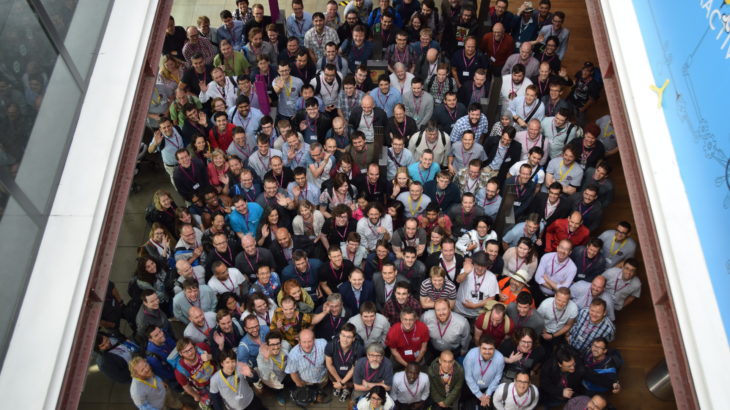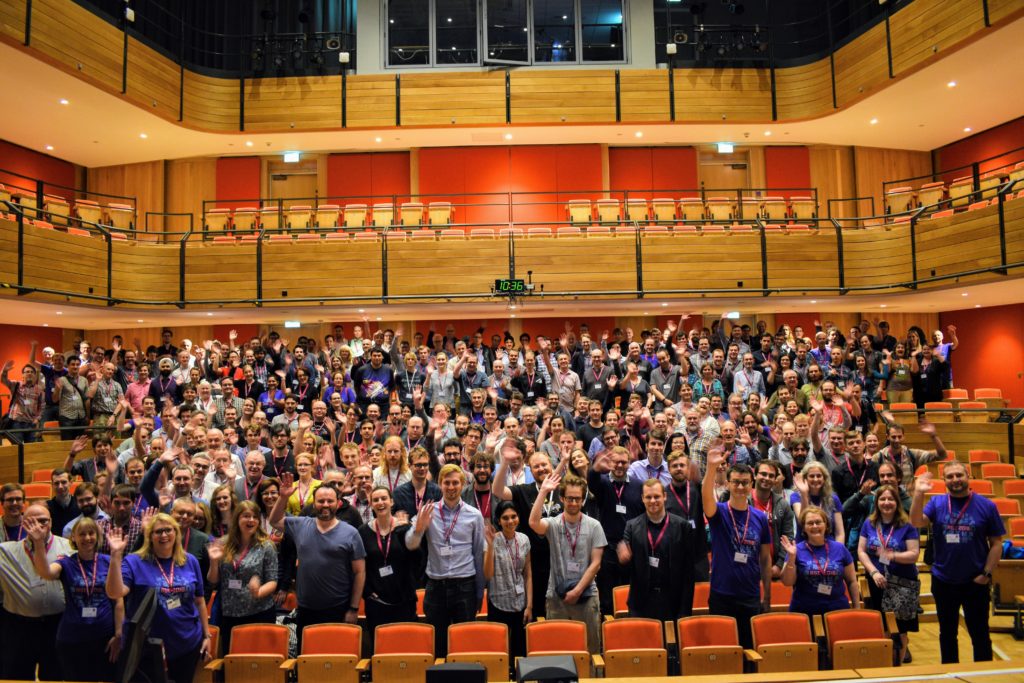Crafting culture change

To celebrate, the tenth anniversary of the Research Software Engineers’ community, we are pleased to bring you this story, which recently featured in the University of Southampton’s Re:Action magazine.
Software is integral to almost every single research project and research ambition. The critical importance of code came into stark reality in March 2020 when the UK went into lockdown based on the results of COVID modelling code developed by Professor Neil Ferguson from Imperial College London.
But historically, software has been treated as dispensable – simply a means to an end. It is this ‘invisible’ work that the University of Southampton’s Professor Simon Hettrick has been fighting for the past decade to get seen – a mission he started by helping to set up the Society of Research Software Engineering and the Software Sustainability Institute.
After completing his PhD in tapered waveguide lasers at the Optoelectronics Research Centre, Simon worked in patent law for three years, before returning to academia and working for the OMII-UK (the Open Middleware Infrastructure Institute), which made Grid software.
“My role was to do technical writing for the software, but I also got involved in project management,” he said. “This was during RCUK’s e-science Programme, focusing on bringing computational techniques into research. At the end of the programme, we could see there were lots of problems – a lot of software was being used in research, but it was being treated as a totally disposable tool. It was the publication that was important, the software was just a means to an end. People would write a bit of code, it would sit on a laptop somewhere, and it would become lost.”
Setting up the institute
Along with colleagues from the universities of Edinburgh, Manchester and Oxford, Simon set up the Software Sustainability Institute in 2010, backed by EPSRC. The institute was an eight-person team supporting 210,000 researchers across the UK.
A huge number of researchers are expected to write code, but there were no incentives for spending time on this
Professor Simon Hettrick
“At first we thought it would be a case of getting software experts working on researchers’ code so they could demonstrate best practice,” explained Simon. “But, as we started looking into software sustainability, we realised we were dealing with an issue of culture change in academia. A huge number of researchers are expected to write code, but there were no incentives for spending time on this. Researchers are incentivised by grant money and publications.

“Nobody knew how much software was out there. One of the first big challenges I faced with the institute was working out how much research relies on software.”
The institute surveyed 15 Russell Group universities in 2014 and received 500 responses from researchers across all disciplines. They found that 92 per cent of researchers were using research software, and 69 per cent said software was fundamental to their research.
“That allowed us to go back to research councils and say ’70 per cent of your budget is underpinned by research software’,” added Simon. Today, the institute is funded by all seven research councils. Simon became its deputy director in 2013.
A decade of RSE
Alongside the institute sits the Research Software Engineers (RSE) Association, today renamed the Society of Research Software Engineers.
Simon, who was the founding chair of the RSE Association from 2014 to 2016 and a Trustee until 2019, recalled: “Ten years ago, there was no career path for someone who developed software in research, yet there was, and still is, a huge demand for software. PIs were turning to post-docs for support with software development. These post-docs were spending time writing software, but their careers were based on papers that they didn’t write and research funding they couldn’t apply for. They were locked into this position.”
The RSE Association was conceived to address this. Today, the RSE community numbers about 10,000 around the world. Nine different countries have national associations for research software engineers.
“The growth has been phenomenal,” said Simon. “The aim is to support research software engineers and give them a career path – they are equally as important as the researchers, and should be seen as so by universities and funding bodies.”
When the RSE Association was born, funding bodies began writing research software engineers into their funding policies, and the EPSRC and STFC introduced an RSE Fellowship.

There are now RSE groups in 31 research organisations across the UK, including the Southampton Research Software Group led by Simon and senior software consultant, John Robinson, which was established in 2015. The group has 11 full-time RSEs and works with researchers from all faculties, as well as running training. The group’s Software Carpentry course has, so far, trained 500 researchers at Southampton in basic software engineering, enabling them to write better software and to follow a reliable, reproducible research approach.
This article originally appeared in the University of Southampton’s Re:Action magazine.
The Hidden REF
In 2021, the first Hidden REF – chaired by Simon – took place. It was an awards ceremony to recognise the ‘hidden’ roles in research and to celebrate everything except publications.
Simon explained: “The Hidden REF came about because there are so many people in research roles, including research software engineers but also data stewards, research managers, librarians, technicians, whose contribution to research is not recognised.”
A total of 61 research organisations, and 120 research outputs, were submitted. “If we recognise every single person who is involved in research, we will increase access of valuable skills and this will advance research,” said Simon. “We have a real opportunity to improve the UK’s research reputation by the simple act of valuing all the people who contribute to it.”
Research England has since announced that elements of the Hidden REF will be carried forward into the next national research assessment exercise.
For more information, please visit hidden-ref.org

